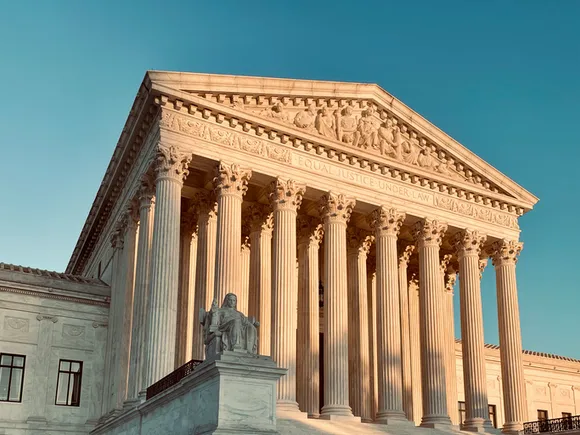The Supreme Court heard arguments in a case involving how far criminal law extends to cover a company’s deceptive acts. How the justices decide the case could affect a host of white-collar prosecutions going forward.
What is undisputed in Kousisis v. United States, argued Monday, is that the Alpha Painting and Construction Co. lied about its intention to comply with a set-aside requirement when it won the bidding process for a pair of high-profile Philadelphia construction projects. But did the company’s deception rise to criminal mail or wire fraud?
The Pennsylvania DOT had conditioned that companies bidding on the projects comply with its disadvantaged business enterprise participation goals for each project. Pennsylvania DOT required that at least 7% of the contract amount for its 30th Street Station project and at least 6% of the contract amount for a separate bridge project go to a DBE.
Alpha delivered the contracted work on both projects but without help from a DBE. In fact, the company allegedly falsified invoices to show DBE compliance and represented that it would obtain $6.4 million in paint supplies from the DBE, with no intent of doing so.
Representing the defendants, attorney Jeffrey Fisher told the justices that no criminal fraud can be committed if there is no injury or harm to a property interest. Since Alpha performed all of the work on the projects, he said PennDOT had suffered no harm and the company should not have been convicted of wire fraud.
But justices on both sides of the aisle expressed skepticism. For instance, Justice Neil Gorsuch noted, “The contract specifically says we want DBEs. That was an essential part of the contract.”
Meanwhile, Justice Elena Kagan asked Fisher, “Suppose you enter into a contract and pay for gold bars worth a million dollars and you get coal worth a million dollars, have you been defrauded?” When Fisher countered that Kagan’s hypothetical was not this case, she said, “But it goes directly to your theory. Your theory is a dollar’s worth of loss makes all the difference.”
Representing the government, Deputy Solicitor General Eric Feigin told the justices that Pennsylvania DOT made very clear the type of service that it wanted in the contract, and the agency did not receive it. Feigin added that the theory would be the same if a contract mandated hiring someone because they are a veteran, and it turned out they were not.
Justice Samuel Alito observed, “The Court really doesn’t like the federalization of white-collar prosecutions and has been hostile to this enterprise.”
Along similar lines, Chief Justice John Roberts asked Feigin if there were any limits to his criminal fraud theory and wondered why state law couldn’t handle the dispute.
In a 2023 case, Ciminelli v. United States, the Supreme Court found that a scheme to defraud contemplates harm to a traditional property interest. The justices noted in that ruling that the mail and wire fraud statutes do not criminalize garden-variety disputes and leave those to state contract and tort law.

